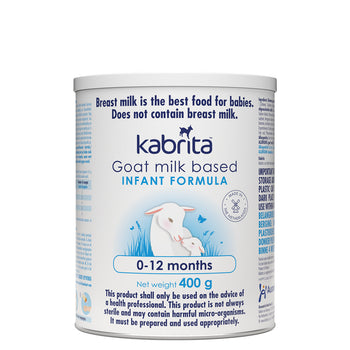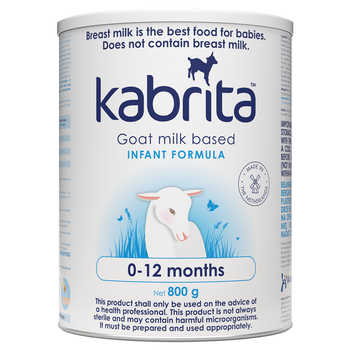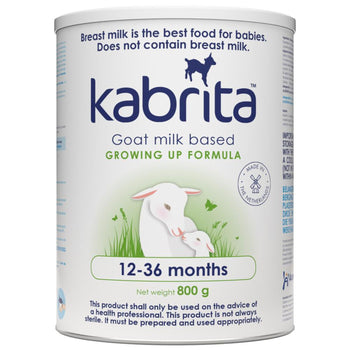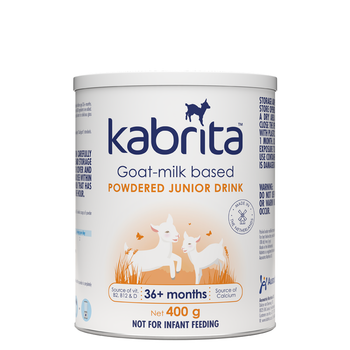The difference between cow milk allergy and lactose intolerance

Cow milk allergy and cow milk or lactose intolerance are different disorders. The names are sometimes incorrectly used as the similar symptoms they cause are often confused.
In the case of a (medically) confirmed cow milk allergy, the immune system responds immediately to the protein in cow milk. However, a medically confirmed allergy to cow milk is relatively rare (2 to 3% of children under the age of six). This usually happens within hours of ingestion and results in moderate to severe symptoms, which can include:
- Swelling around the mouth
- Difficulty swallowing
- Vomiting and regurgitation
- Severe diarrhoea
- Food refusal
- Failure to thrive (insufficient weight gain)
- Severe colic
In rare cases, anaphylactic shock leading to death
With mild complaints due to hypersensitivity to cow milk, goat milk could possibly be a gentle alternative. These mild complaints are often called a cow milk intolerance. A cow milk intolerance can occur when components of cow milk – the fat, protein, or a combination of components – are digested poorly. Unlike a cow milk allergy, a cow milk intolerance is not a medical condition. It can however lead to mild to moderate symptoms that can affect the skin, gastrointestinal, and respiratory systems. These symptoms can take days, weeks or even months to present and can include:
- Mild to moderate eczema
- Nappy rash
- Abdominal discomfort
- Gas
- Bloating
- Constipation
- Loose stools
- Colic
- Lung and nasal congestion
A lactose intolerance causes symptoms due to poorly digested lactose. Lactose is present in all milk produced by mammals (including humans) and is often referred to as milk sugar. As breast milk also naturally contains lactose, it is very unlikely that your baby or toddler will be lactose intolerant. In many cases, poor lactose digestion occurs after weaning. It may lead to the symptoms as described below and is, in that case, referred to as lactose intolerance:
- Abdominal bloating and cramps
- Flatulence
- Diarrhoea
- Nausea
- Rumbling stomach
- Vomiting
In case of complaints always consult your doctor first - or the health professional at the child health clinic- to rule out a cow milk allergy or lactose intolerance, before switching to Kabrita goat milk formula.



